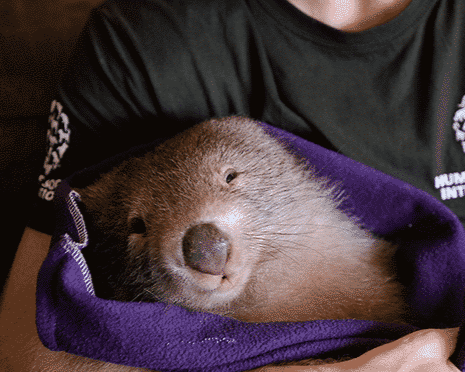The Newsletter of Humane World for Animals' Wildlife Land Trust • Issue 30 • 2025 Read More
It is with immense joy that I report that South Korea’s National Assembly has just passed legislation to ban on the dog meat industry. In November, the South Korea government publicly announced that it would support a ban; this historic vote was the final hurdle to make such a ban official.
With a three-year phase-out period during which dog farmers can apply for government compensation and assistance to transition to different livelihoods, the breeding, slaughter and sale of dogs and dog meat for human consumption will be illegal in South Korea by 2027.
Almost a decade ago when Humane Society International/Korea began its efforts to help close and remove dogs from dog meat farms in South Korea, helping dog farmers to identify new and humane opportunities, we were told that achieving a ban would be impossible. But through determination, strategic discipline and an optimistic passion for change, we proved naysayers wrong. At the time, the sheer scale of animal suffering in the industry was hard to even fathom. I have joined our rescue teams on the ground at dog meat farms, and I have seen the rows and rows of rusty cages containing dog after dog after dog peering out in desperation. I remember some dogs were strong enough to stand up and wag their tails; others remained huddled in the corners of their cages, skeletal and starving.
As many as 1 million dogs are factory farmed and killed for human consumption in South Korea each year, which means the ban will have an enormous impact on reducing animal suffering. It is a monumental achievement.
Many dog farmers have been keen to exit this controversial industry for some time. Over the years, we’ve worked with 18 dog farmers to help them permanently close their farms and transition them to other, cruelty-free professions, like growing crops such as chili plants and parsley, or water delivery, through our Models for Change program. In doing so, we also rescued more than 2,700 dogs and puppies from these farms and ended the cycle of suffering for countless more.
When we first launched our effort, there were those who questioned the value of the approach. How would closing a few of the several thousand dog meat operations in South Korea make a real difference? But we knew we’d only have to close a few to make the point and demonstrate a model for change. Our program showed policymakers that it was possible to permanently close dog meat farms without putting people out of work. In fact, it would put these individuals on new and better paths to success and livelihood. The new law contains a provision similar to ours, which allows for dog farmers, slaughterers and restaurant owners to apply for government support to help them to transition or close those businesses.
I am so proud of the boundless energy and dedication our team in Korea has brought to raising public awareness about the cruelties of dog meat farming: Those efforts have attracted global attention as representatives of Korean and international media have come to our dog meat farm closures to expose the realities of the industry. Doing so has changed hearts and minds. We’ve brought Tosa puppies to a popular shopping mall in Seoul to show crowds that these much maligned “meat dogs” are just as deserving of compassion as their beloved companions at home. We’ve partnered with Korean groups to drive a truck around cities emblazoned with eye-catching dog meat farm scenes to bring the grim reality to life. We’ve seen the eyes of people of all ages tear up after experiencing the horrors of the industry via our virtual reality headsets. We’ve partnered with Korean vegan chefs to create plant-based alternatives to dog meat soup. We hosted a photography exhibit in partnership with renowned photographer Sophie Gamand that featured dogs we rescued from dog meat farms, aiming to change public perceptions by spotlighting the dogs’ resilience and beauty. We’ve joined thousands of Korean animal advocacy groups and citizens marching on the streets for change, and partnered with celebrity advocates like Daniel Henney, Gus Kenworthy, Annie Ko and other influential supporters to amplify our campaign. We’ve supported the closures of the nation’s most infamous dog slaughterhouses and markets. And we have saved lives, showing that given a chance for loving homes, these dogs have endless love to give back.
If there is any surer sign of the shift in domestic attitudes in South Korea, it’s this. More than 6 million pet dogs now live in Korean homes, and demand for dog meat is at an all-time low.
Not long ago, I detailed wins related to our work to end the dog meat trade in 2023. Even as we had some indication that this law was moving forward, I cannot overstate how this day feels for everyone who has worked so hard for so long to make a dog meat ban in South Korea a reality. But that’s what we do: We make change for animals that others might think impossible.


